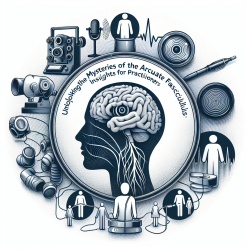Introduction
In the ever-evolving landscape of healthcare, especially in the context of HIV treatment in sub-Saharan Africa, adopting a person-centered care (PCC) approach can be a game-changer. The systematic review titled "Systematic review: Development of a person-centered care framework within the context of HIV treatment settings in sub-Saharan Africa" provides a comprehensive framework that can enhance the quality and effectiveness of HIV treatment services. This blog will delve into the key findings of the research and how practitioners can leverage these insights to improve their practice.
Understanding Person-Centered Care (PCC)
PCC is a holistic approach that focuses on meeting the individual needs of patients by enhancing convenience, providing culturally appropriate services, and engaging families and communities in care planning. The research highlights the importance of PCC in improving clinical outcomes across the HIV care continuum, although it remains underdefined in many HIV service delivery contexts.
The Framework: Key Domains and Sub-Domains
The systematic review identified three major domains within the PCC framework, each with specific sub-domains:
- Staffing: This includes sub-domains like composition, availability, and competency of healthcare providers.
- Service Delivery Standards: Encompasses client feedback mechanisms, service efficiency, integration, convenience, access, and digital health worker support tools.
- Direct Client Support Services: Covers psychosocial services, logistics support, client agency, and digital client support tools.
These domains collectively aim to enhance linkage to care, treatment retention, and viral suppression among patients.
Implementing the Framework in Practice
Practitioners can implement this framework by:
- Enhancing Staff Competency: Invest in training programs that improve the skills and knowledge of healthcare providers, ensuring they are equipped to deliver person-centered care.
- Utilizing Feedback Mechanisms: Establish systems for regular feedback from clients to improve service delivery and address patient needs effectively.
- Integrating Digital Tools: Leverage digital tools to support both healthcare workers and clients, improving communication, access to information, and overall care coordination.
- Fostering Community Engagement: Engage with families and communities to support patient care, ensuring that services are culturally sensitive and community-oriented.
Encouraging Further Research
While the framework provides a solid foundation, continuous research is essential to refine and adapt PCC practices to diverse healthcare settings. Practitioners are encouraged to conduct further studies to explore the effectiveness of PCC interventions in different contexts and populations.
Conclusion
Implementing a person-centered care framework in HIV treatment settings can significantly improve patient outcomes and service delivery. By focusing on the individual needs of patients and engaging communities, healthcare providers can create a more effective and compassionate healthcare environment.
To read the original research paper, please follow this link: Systematic review: Development of a person-centered care framework within the context of HIV treatment settings in sub-Saharan Africa.










